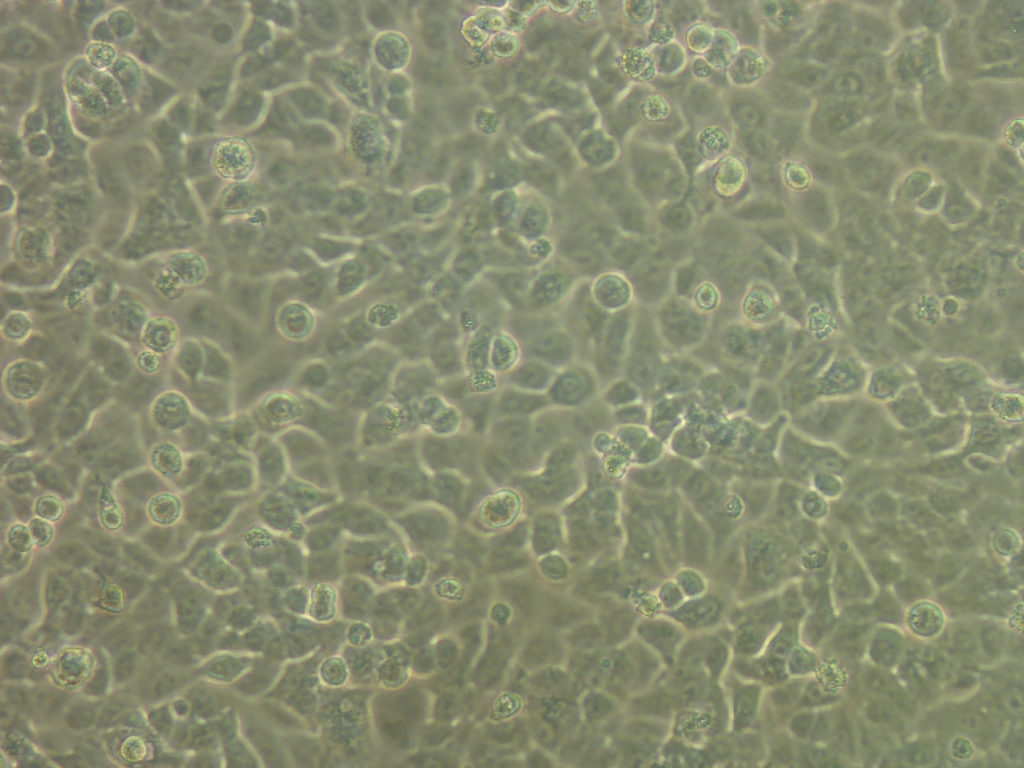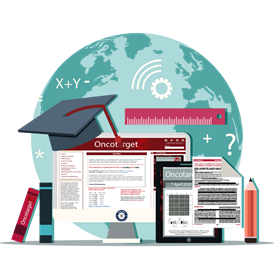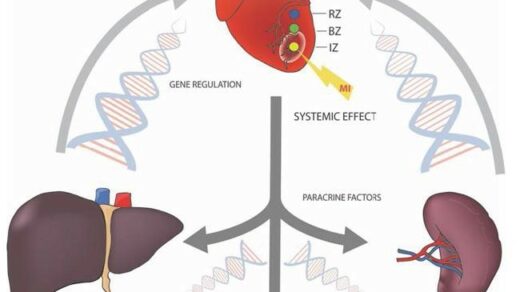Researchers based out of South Africa published a new study of a drug most commonly used to treat HIV/AIDS, efavirenz, in an initial in vitro study to treat lung cancer.

The Trending with Impact series highlights publications attracting higher visibility among readers around the world online, in the news, and on social media — beyond normal readership levels. Look for future science news and articles about the latest trending publications here and at Oncotarget.com.
—
Efavirenz (EFV) is a non-nucleoside reverse transcriptase inhibitor drug commonly used for patients in the treatment of HIV/AIDS. Previous studies have shown that EFV also has cytotoxic effects against other cancer cells, such as colorectal, glioblastoma, and pancreatic. Researchers based out of South Africa published a new study in Oncotarget about EFV in the treatment of lung cancer and observed that numerous genes related to the cell cycle can bring clarity to its effects on lung cancer.
The Study
“The numbers of HIV-positive patients with lung cancer as a leading non-AIDS defining cancer (NADC) will most likely increase over the next two decades.”
As the number of people with HIV and lung cancer increases, these researchers found it important to study lung cancer, HIV, and the potential interaction between the two diseases. They decided to explore the effects of EFV on non-small cell lung carcinoma (A549) and normal lung fibroblast (MRC-5) cells. This study produced effects of EFV on lung cancer in in vitro cell-line models.
“Because the cell cycle is a tightly regulated process, eukaryotic cells respond to external stimuli, such as DNA damage, by activating signaling pathways that promote cell cycle arrest and DNA repair [28].”
Given the significance of the cell cycle in respect to cell proliferation and tumor growth, the researchers examined the changes that took place in the cells after EFV treatment in 84 human genes related to the cell cycle. They performed statistical analysis, DNA staining, cell-cycle PCR arrays, real-time cell-cycle PCR arrays, and Ingenuity Pathway Analysis.
EFV treatment caused deformation and potential DNA damage in A549 and MRC-5 cells and a change in expression of selected gene targets, including MAD2L2, CASP3, and AURKB. The ATM signaling pathway was observed to be up-regulated after EFV treatment in MRC-5 cells. In particular, the ATM upstream activation resulted in p53 up-regulation in normal lung fibroblasts. Researchers were interested to find that the p53 signaling pathway was activated, despite the repressed ATM pathway in A549 cells.
“This study is the first to reveal EFV mediated ATM/ATR genotoxicity in lung cells.”
Conclusion
Their findings revealed that EFV induced S-phase cell-cycle arrest, which allowed them to observe anti-proliferative effects. The results show that the EFV-treated genes displayed alterations that are characteristic of anti-tumor properties, therefore, their study suggests that EFV has anti-tumor properties. They also note that EFV renders tumor cells more sensitive to radiation therapy.
This is the first study to show the anti-proliferative effects of EFV on lung epithelial cancer cells in relation to primary lung fibroblast cells.
The researchers note that, after further studies, EFV may be a promising drug that can be used in synergy with chemo/radiotherapy. They also explain that EFV has an excellent safety profile in comparison to standard chemotherapy.
Click here to read the full scientific paper, published in Oncotarget.
—
Oncotarget is a unique platform designed to house scientific studies in a journal format that is available for anyone to read – without a paywall making access more difficult. This means information that has the potential to benefit our societies from the inside out can be shared with friends, neighbors, colleagues and other researchers, far and wide.



